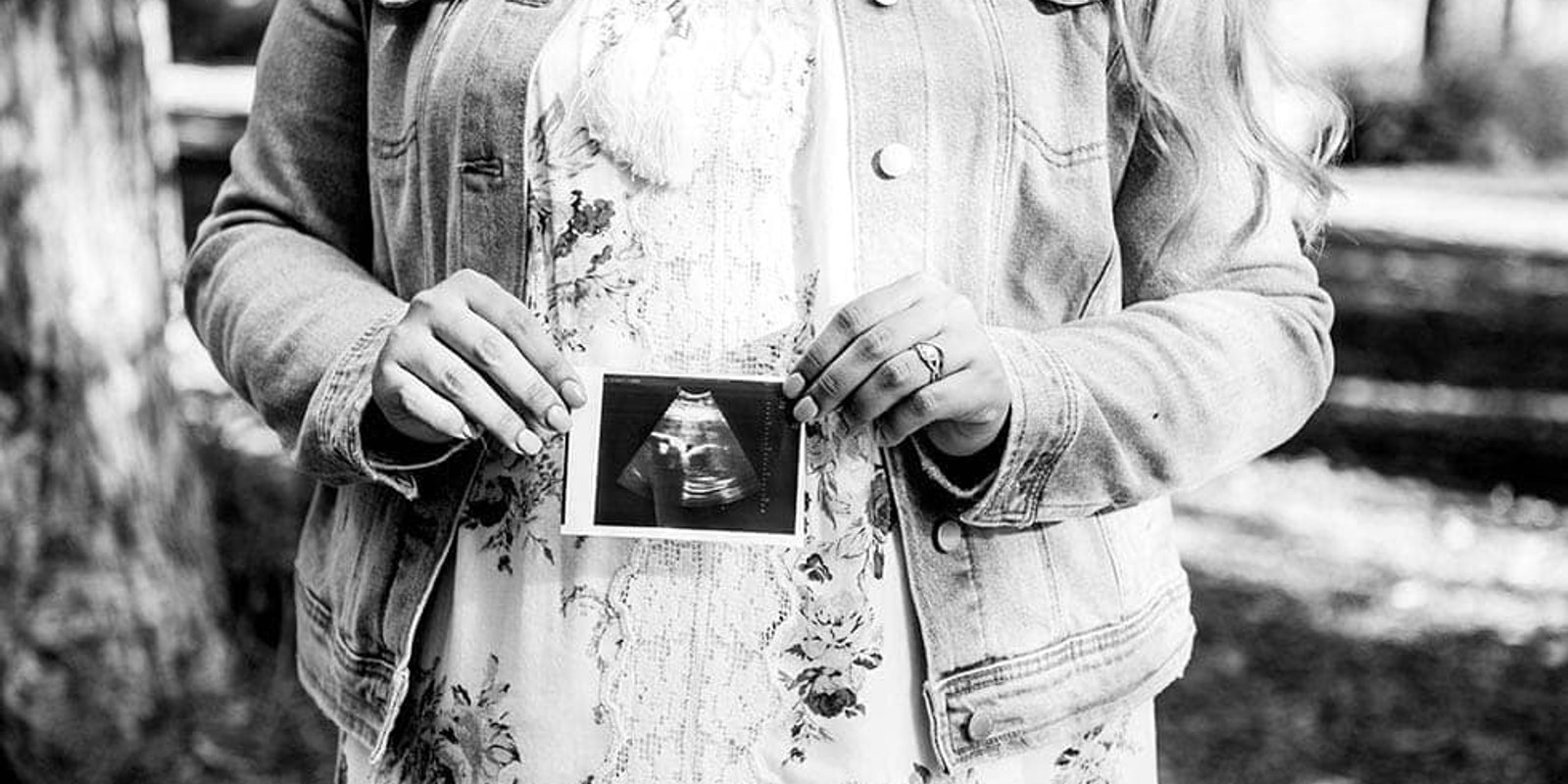Wrongful Death of an Unborn Child/Fetus
The Wrongful Death Of An Unborn Child – What Should You and Your Family Do Next?
The wrongful death of an unborn child after an auto accident is an unthinkable tragedy. It is a shocking result of an auto accident, no one ever thinks a child will die before even having the chance to live. However, the wrongful death of an unborn child is an issue that many families deal with after an auto accident. This article explores what steps you can take and what the law means to families impacted by this tragedy.
Tort law often contemplates what justice requires in the aftermath of a terrible human tragedy. From relatively minor injuries to horrendous maiming and deaths, tort law offers remedies for injured parties or their survivors. Of all the scenarios for which tort law provides some relief, the death of a child is among the most tragic. One can scarcely imagine a more devastating loss to parents and family.
A child’s death, regardless of cause, is indescribably painful and visceral. For some, the death of an unborn child may be equally traumatic. Yet remedies for the death of a fetus are based on uncertain grounds and subject to understandably heated debate. This article explores the origin of the Wrongful Death of an Unborn Child and its application to a fetus to make sense of seemingly unstable and unclear jurisprudence.
The top injury attorneys at Phoenix Accident and Injury Law Firm near you have more than 15 years of experience in helping clients who have experienced the Wrongful Death of an Unborn Child after an auto accident. Our offices are conveniently located in nearby Chandler, Peoria, and North Phoenix, and we can meet in person or over the phone, or via video call. You can contact us for a free consultation, or read on to find out more.
By the way, we will also help with other problems that have cost you sleep, like getting a rental car very soon and finding a nearby doctor who can help you. Even the best legal team isn’t good enough if your quality of life isn’t sustainable while justice and compensation are on the way. The whole point of legal action is to regain quality of life, so we help you long-term as attorneys and short-term as your go-to people.
Wrongful Death In Arizona
In the history of Anglo-American tort law, the Wrongful Death of an Unborn Child is a relative newcomer. Under common law, a cause of action for tortious harm expired with the death of the tort victim. Neither the victim’s family nor the estate had any remedy. This created an unsettling inequity in the law. Where a tortfeasor injured or maimed another person, the injured person could recover damages under tort law. But where a tortfeasor participated in conduct so reckless and dangerous that it killed someone, they weren’t liable to anybody.
The earliest statutory fix for this glaring inconsistency came from the British Parliament in the Fatal Accidents Act of 1846. Arizona’s first Wrongful Death of an Unborn Child statute followed 41 years later, based largely on England’s Fatal Accidents Act.
Even then, Arizona’s wrongful death statute only allowed the suit to be brought by the next of kin of the decedent. The next of kin had the burden of proving their relationship to the deceased as well as their damages. The statute was revised in 1901, allowing only a representative of the decedent’s estate to sue, with damages to be distributed to heirs as part of the estate. The statute was largely left alone, with only minor modifications, until 1956.
The statute was then amended to allow suit by a decedent’s surviving spouse, children, or parents. If the decedent had no family, a representative of their estate could bring a wrongful death action. In 2000, the legislature expanded the Wrongful Death of an Unborn Child statute to include any surviving children, parents, or legal guardians as people who had the standing to sue. Arizona’s Wrongful Death of an Unborn Child statute has remained unchanged since then.
Arizona’s Wrongful Death Statutes
The Arizona Wrongful Death of an Unborn Child Act is composed of 3 statutes, A.R.S. § 12-611, 612, and 613. § 12-611, titled “Liability” describes who may be sued for wrongful death. If an individual would have been liable for injury to a decedent had they not died, they are likewise liable for their death. § 12-612 describes who may bring a Wrongful Death of an Unborn Child action.
This includes a decedent’s: spouse; natural or adopted children; natural or adoptive parents; legal guardians; and a personal representative for the decedent’s estate. § 12-613 describes the scope of damages a plaintiff may recover. It allows a jury to award any damages it deems “fair and just”, with consideration for mitigating and aggravating factors
A plaintiff in a Wrongful Death of an Unborn Child action has certain responsibilities to the other statutory beneficiaries, regardless of whether a beneficiary was involved in the lawsuit. Plaintiffs have a fiduciary duty of care to protect the interests of all beneficiaries throughout the litigation. From conducting the action to the distribution of proceeds at the end of the case, a plaintiff and their counsel must ensure that no known beneficiary’s interests will be injured by the named plaintiff’s conduct.
Application to the Wrongful Death of an Unborn Child
The confusion and debate surrounding Arizona’s Wrongful Death of an Unborn Child statute stem directly from § 12-611’s use of the word “person”. For obvious reasons, the Wrongful Death of an Unborn Child only applies when it is a person who has been killed. While that requirement is easily met in most situations, it poses a particular difficulty when the decedent is in a Wrongful Death of an Unborn Child. Medical malpractice during gestation can result in prenatal injuries and death from which lawsuits may arise.
But there is a litany of other scenarios where a tortfeasor may be at fault for the death of an unborn child. Trauma is a leading cause of fetal morbidity and mortality, and any number of accidents that befall an expectant mother may lead to serious complications, even death, for her child. For mothers who tragically lose their unborn children due to someone’s negligence, do Arizona’s wrongful death statutes provide any recourse? Is a fetus a person for purposes of a wrongful death?
The answer is complicated. Whether a fetus is a person has been the subject of heated debate for decades. The debate has mainly raged in the controversies surrounding abortion, but it has important implications in the world of wrongful death. Roe v. Wade, perhaps the most controversial case ever taken by the U.S. Supreme Court, held in part that the word “Person”, as used in the Fourteenth Amendment, did not include unborn children.
At first blush, Roe might seem at odds with any definition of “Person” that includes a fetus. But the Arizona Supreme Court has held that “Person” can mean different things in different contexts. In Summerfield v. Super. Ct, the Arizona Supreme Court explained that it need not adopt Roe’s definition of “Person” for purposes of Wrongful Death of an Unborn Child actions.
“Right or wrong, it is one thing to hold that in the first trimester, the mother’s rights outweigh those of the fetus so that she may voluntarily terminate the pregnancy, but a very different thing to say that after the fetus has achieved viability the pregnancy may, with impunity, be terminated against the mother’s will.”
Summerfield ultimately held that absent a clear demonstration of legislative intent to the contrary, the word “Person” in A.R.S. § 12-611 to 613 included a stillborn, viable, fetus. The Court recognized viability as the point at which a fetus was “capable of extrauterine life”, but acknowledged the difficulty of assessing whether or not a fetus was viable in the early stages of pregnancy. Viability has been a hotly contested issue ever since.
Shifting Lines: What Does Viability Mean?
The Court in Summerfield felt that viability was a “less arbitrary and more logical” line to draw than the moment of birth when determining whether a fetus is a person for purposes of wrongful death. But in practice, the viability standard presents a whole host of problems. When a Wrongful Death of an Unborn Child is negligently killed a few days or weeks before it is due, the viability question has a clear answer.
Similarly, an embryo that has not yet matured into a fetus clearly cannot meet the viability standard. The difficult scenarios lie somewhere in between. Roe v. Wade recognized that viability is typically placed at about 7 months (28 weeks) but can occur as early as 24 weeks. However, Roe v. Wade has decided over 40 years ago, and the Supreme Court’s understanding of viability was necessarily limited by the medical care capabilities of 1973. Four decades later, over half of the children born at 24 weeks survive. Even infants born at 23 weeks have a 26% chance of survival, and 6% of those born at 22 weeks can survive outside the womb.
Some line must be drawn, the trouble is in where to draw it. Too early, and the viability standard would be rendered meaningless as unborn children with no realistic chance of survival independent of their mothers are granted personhood for purposes of wrongful death. Too late, and some percentage of mothers whose children were viable would be denied a cause of action.
The most vexing problem with the viability standard is that in most cases whether an unborn child was viable is speculative. When an unborn child dies due to a negligent act at 22 weeks, it’s difficult to know whether that child belonged to the 6% of fetuses that are viable at 22 weeks or the 94% that are not. Deciding that, as a practical matter, those fetuses with such slim chances of survival are not viable ignores the fact that 6% of them could have lived independently of their mothers.
Don’t the mothers of that 6% deserve some cause of action? When are the odds too poor to justify personhood for unborn children? These are difficult questions for which the law provides no clear answers, and they can only get harder. With every new advance in neonatal care, the viability line gets increasingly blurry.
Some states have broadened personhood in the Wrongful Death of an Unborn Child by recognizing every live-born child as a person, regardless of viability. Even where a fetus is not mature enough to survive independently of its mother, there may nevertheless be a cause of action if it was alive outside the womb for any length of time. Arizona has yet to reach or adopt this conclusion, but doing so would come with its conceptual difficulties.
Those states that consider whether a child was born alive regardless of viability often reason that when a fetus, even a non-viable one, is born alive, it becomes a living person suffering from its unique injuries. But recognizing a cause of action for the injuries and death of a live-born, non-viable child, while declining to recognize the suffering of an identically aged, non-viable, but unborn fetus seems untenable. There is no reason to expect that their suffering should differ from one another. The fact that one manages to linger long enough to briefly survive separate from their mother, while the other dies in utero, seems an arbitrary line to draw for personhood.
Additionally, such a line might pose the same inequity that common law negligence presented before the existence of Wrongful Death of an Unborn Child statutes. There could be no cause of action against a severely dangerous and negligent act that results in the near-instant death of a non-viable fetus. But a negligent act that harms the unborn child slightly less, allowing it to survive long enough to be born alive before expiring, is an actionable tort. The more reckless and dangerous the conduct, the greater the odds that the fetus will die before it can be born alive, thereby extinguishing any cause of action against the tortfeasor. This seems no better than the injustice that wrongful death statutes were created to correct.
Damages in The Wrongful Death of an Unborn Child
Calculating damages may seem like the most convoluted part of a Wrongful Death of an Unborn Child. Figuring out what the parents can recover and how much they should be owed for their loss may seem a daunting task. But in reality, damages are relatively simple in these cases.
Three types of damages might be sought in any civil tort claim: nominal damages, to establish that a plaintiff has had their rights violated; Compensatory damages to replace what a plaintiff has lost, and punitive damages to act as a deterrent against tortious conduct. In Wrongful Death of an Unborn Child cases, parents are allowed to recover loss of society damages to compensate them for the loss of their relationship with their children.
The age of the child is irrelevant to the loss of society damages. Arizona law treats unborn children no differently than those who are born and survive independently of their mothers. The fact that parents do not get to meet their child face to face does not prevent them from establishing a relationship with the unborn child. Parents may sing, read or speak to their unborn children. They develop love and expectations for the future of their child. In this regard, whether the child is born or not makes no difference. The loss is real to parents either way and they may recover damages for it.
Looking to the Future
On April 3, 2018, Arizona Governor Doug Ducey signed A.R.S. 25-318.03 into law. The new law, titled “Human embryos; disposition; responsibility for resulting child; definitions”, codifies Arizona’s preference for human embryos to be given to the party who wants to develop the embryos after a divorce. The development comes on the heels of a cutting-edge debate nationwide about parental rights and personal autonomy toward human embryos.
States have differed on how to address disputed embryos in divorce proceedings. Many have favored the wishes of those who do not want the embryos developed to avoid making parties into parents against their will. Some states would even rather see the embryos destroyed than have the autonomy of their would-be parents overridden. Arizona, however, has taken the opposite approach, giving rights to the party who wants to see the embryo developed into a child. Senator Nancy Barto, a Phoenix Republican, introduced the bill partly because “most people believe that frozen embryos should have a chance at life.”
How and whether A.R.S. 25-318.03 changes the calculus for the Wrongful Death of an Unborn Child remains to be seen. Jeter v. Mayo Clinic, which held that a cryopreserved embryo was not a person for purposes of wrongful death, reached that conclusion partly because an analysis of legislative intent did not support personhood for embryos.
Now, however, the Arizona legislature has expressed a preference. A.R.S. 25-318.03 places the “life” of an embryo above the personal autonomy of a parent who opposes that embryo’s development. This law may be the proverbial wrench in Jeter’s works. If it does, human embryos could receive personhood for purposes of wrongful death.
From there, it’s difficult to reason why all fetuses, regardless of viability, should not be afforded that same protection. But it’s important to remember Summerfield’s guidance that “person” means different things in different contexts. Whether the Arizona legislature’s preference for the life of an embryo translates from the realm of divorce to the world of the Wrongful Death of an Unborn Child is something only the courts can say for sure.
The wrongful death of an unborn child presents practical problems and questions that the law continues to grapple with. Whether Arizona courts will continue a complex analysis of viability hampered by continuous medical advances or adopt simpler hardline rules remains to be seen. For now, the Wrongful Death of an Unborn Child will continue to be an unsettled, contentious, and complicated topic in tort law.
How Phoenix Accident and Injury Law Firm Can Help You
At Phoenix Accident and Injury Law Firm near you, we have more than 15 years of experience helping clients obtain compensation for the Wrongful Death of an Unborn Child. When you’re ready to talk, please contact our office to arrange a [free initial consultation by phone](tel: (480) 680-8125) or at our Chandler office, conveniently located in your area.
If you need medical treatment after a car accident contact Phoenix Accident and Injury Law Firm near you in nearby Chandler, AZ to speak with an experienced personal injury attorney. We provide personal injury legal services to clients in your area including Chandler, Gilbert, Mesa, Scottsdale, Tempe, and Peoria.











